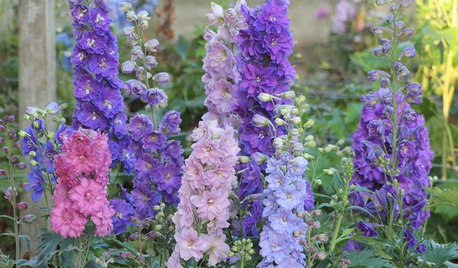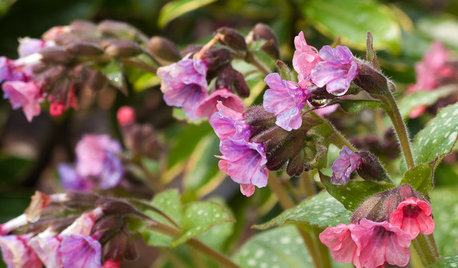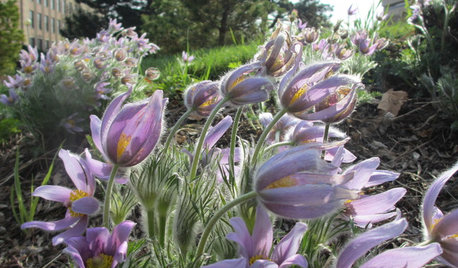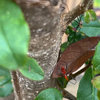The 'aspirin technique' for controlling some plant diseases
nandina
17 years ago
Related Stories

GARDENING GUIDESTree Care: Common Tree Diseases and What to Do About Them
Learn to recognize trees that may be affected by diseases or pests so you can quickly take action
Full Story
SELLING YOUR HOUSEHome Staging to Sell: The Latest Techniques That Really Work
Get up to speed on the best ways to appeal to potential buyers through accessories, furniture, colors and more
Full Story
GARDENING GUIDES6 New Plant Varieties That Beat Out Their Parents
With better resistance and fewer demands, these garden beauties are worth a spot on your wish list
Full Story
GARDENING FOR BUTTERFLIES3 Ways Native Plants Make Gardening So Much Better
You probably know about the lower maintenance. But native plants' other benefits go far beyond a little less watering and weeding
Full Story
GARDENING GUIDESGreat Design Plant: Knock Out Roses
As glorious as their high-maintenance kin for a fraction of the work, Knock Out roses make even beginners look like garden stars
Full Story
GARDENING GUIDESMake Sure You Read This Before Buying New Plants
Follow these 10 plant-selection tips to avoid buyer’s remorse
Full Story
GARDENING FOR BUTTERFLIESGreat Design Plant: Lungwort
Yes, the name is unfortunate. But the flowers and foliage are delightful, and this perennial is easy to grow and shunned by deer
Full Story
GARDENING GUIDES6 Plants That Beat Butterfly Bush for the Wildlife Draw
It's invasive, a nonnative and a poor insect magnet. Check out these better alternatives to butterfly bush in the garden
Full Story
LANDSCAPE DESIGNMake Your Roses Even More Beautiful With These Companion Plants
Nourish your rosebushes and create a visual feast with these 7 classic and unexpected plant pairings
Full Story
ARBOR DAY8 Reasons to Plant a Great Tree
Beauty is its own reward, but the benefits of planting the right tree in the right place go way beyond looks
Full Story






username_5
rhizo_1 (North AL) zone 7
Related Professionals
La Marque Landscape Architects & Landscape Designers · Mitchellville Landscape Architects & Landscape Designers · Surprise Landscape Contractors · Fort Mill Landscape Contractors · Huntley Landscape Contractors · Lake Saint Louis Landscape Contractors · Live Oak Landscape Contractors · Oviedo Landscape Contractors · Wilsonville Landscape Contractors · Northlake Landscape Contractors · Hawaiian Gardens Landscape Contractors · Landover Outdoor Lighting & Audio Visual Systems · Beavercreek Decks, Patios & Outdoor Enclosures · Centennial Decks, Patios & Outdoor Enclosures · Greendale Decks, Patios & Outdoor Enclosuresusername_5
nandinaOriginal Author
zucchini
dchall_san_antonio
username_5
dchall_san_antonio
nandinaOriginal Author
Barb_OH
ellen_z7ny
nandinaOriginal Author
hummersteve
stealle
greentiger87
greengrass12